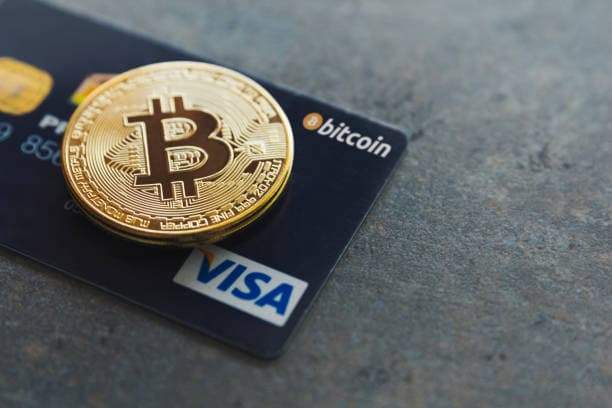Bitcoin (BCH) details, what is the difference between BTC and BCH?
In the world of cryptocurrencies, Bitcoin (BTC) and Bitcoin Cash (BCH) are often compared. As two digital currencies based on blockchain technology, the difference between BCH and BTC is not only limited to their names, but also involves their design concepts, transaction speeds, and network capacity. Today, we're going to take a closer look at how Bitcoin (BCH) came to be, how it differs from Bitcoin (BTC), and find out which one is better suited for your cryptocurrency investing needs.

How was Bit Cash (BCH) born?
Bitcoin Cash (BCH) was born in 2017 as a hard fork within the Bitcoin (BTC) community. Simply put, BCH was created by some of Bitcoin's developers and community members who felt that Bitcoin's block size limit (1MB per block) could not support the growing demand for transactions. To solve this problem, BCH increased the block size to 8MB and plans to further expand the block size to increase transaction processing speed and reduce transaction costs. Therefore, the birth of Bitcoin is actually an "upgrade" of Bitcoin's transaction performance, in the hope that it can become a more suitable digital currency for daily payments.
Blockchain Differences Between BTC and BCH
Block size is one of the core differences between Bitcoin and Bitcash. Bitcoin's block size is limited to 1MB, while Bitcoin's block size has been increased to 8MB, and there are even plans to expand it further in the future. This means that Bitcoin is able to process more transactions in the same amount of time, giving it a significant advantage over Bitcoin in terms of transaction speed and cost. Larger blocks reduce network congestion, resulting in shorter transaction processing delays and lower costs.
The difference between transaction speed and cost
Bitcoin (BCH) clearly outperforms Bitcoin (BTC) in terms of transaction speed and cost. Because BCH has a larger block size, it can process more transactions per second (TPS, Transaction Per Second). In the Bitcoin network, transaction confirmation times and fees increase dramatically when transaction volumes spike, especially during busy market periods. By increasing the block size, Bitcoin is able to maintain lower fees and faster transaction speeds in high volume situations, making it more suitable for daily payments and small transactions.
Differences in Community Philosophy between BCH and BTC
Bitcoin (BTC) and Bitcoin Cash (BCH) also differ in their community philosophies. Bitcoin supporters emphasize the value-storage function of Bitcoin as "digital gold" and value its advantages in terms of decentralization, censorship resistance, and long-term stability. In contrast, supporters of Bitcoin emphasize its utility as a payment tool, especially for small payments and quick transactions. The idea of Bitcoin is to become a widely used payment currency around the world, not just a store of value.
Future prospects for BCH and BTC
Going forward, there will continue to be significant differences in the direction of BTC and BCH. Bitcoin (BTC), one of the largest and most recognized cryptocurrencies by market capitalization, will continue to focus on enhancing the security of the network, decentralizing it, and preserving its value as capital. Bitcoin (BCH), on the other hand, will likely continue to focus on improving transaction efficiency, reducing transaction fees, and enhancing the use of global payment systems. Despite their different philosophies, they both play important roles in their respective fields, and their future development will depend on market demand and technological innovation.

BTC and BCH Security and Miner Differences
In terms of security, Bitcoin (BTC) is similar to Bitcoin Cash (BCH) in that both are decentralized currencies based on blockchain technology. Both use the Proof of Work (PoW) consensus mechanism and both require miners to mine in order to maintain the security of the blockchain. The larger block size of Bitcoin means that it requires more computing power to process transactions, which can lead to centralization of miners, which is where BCH's security needs to be further improved.
Which is more suitable for investment or payment?
Whether you choose Bitcoin (BTC) or Bitcoin Cash (BCH) depends on your needs. If you are looking for long-term capital preservation and want to use cryptocurrencies as part of your asset allocation, Bitcoin (BTC) is undoubtedly the more appropriate choice. As the world's largest cryptocurrency by market capitalization, it has a high degree of recognition and stability. Bitcoin (BCH) is a better choice if you need to make daily payments, transfer funds, or want to make quick transactions with low transaction fees. Due to its speed and cost advantages, BCH is better suited for everyday payments.
Frequently Asked Questions Q&A
1. Are the blockchains of BCH and BTC completely different?
While the blockchains of BCH and BTC share the same origins (the Bitcoin blockchain), they differ in terms of block size, transaction speeds, and handling fees.BCH's blocks are larger and designed to increase transaction processing power.
2. Will BCH become an alternative to Bitcoin?
For now, Bitcoin remains the leader in the cryptocurrency market and is considered "digital gold". Bitcoin, on the other hand, is more focused on payment functions, so their respective market positions are different, making them difficult to replace.
3. Is investing in BCH risky?
Any cryptocurrency carries the risk of market volatility and BCH is no exception. Although BCH has advantages in terms of transaction speed and cost, its market acceptance is still relatively low compared to that of Bitcoin, so you need to assess the risk carefully before investing.














